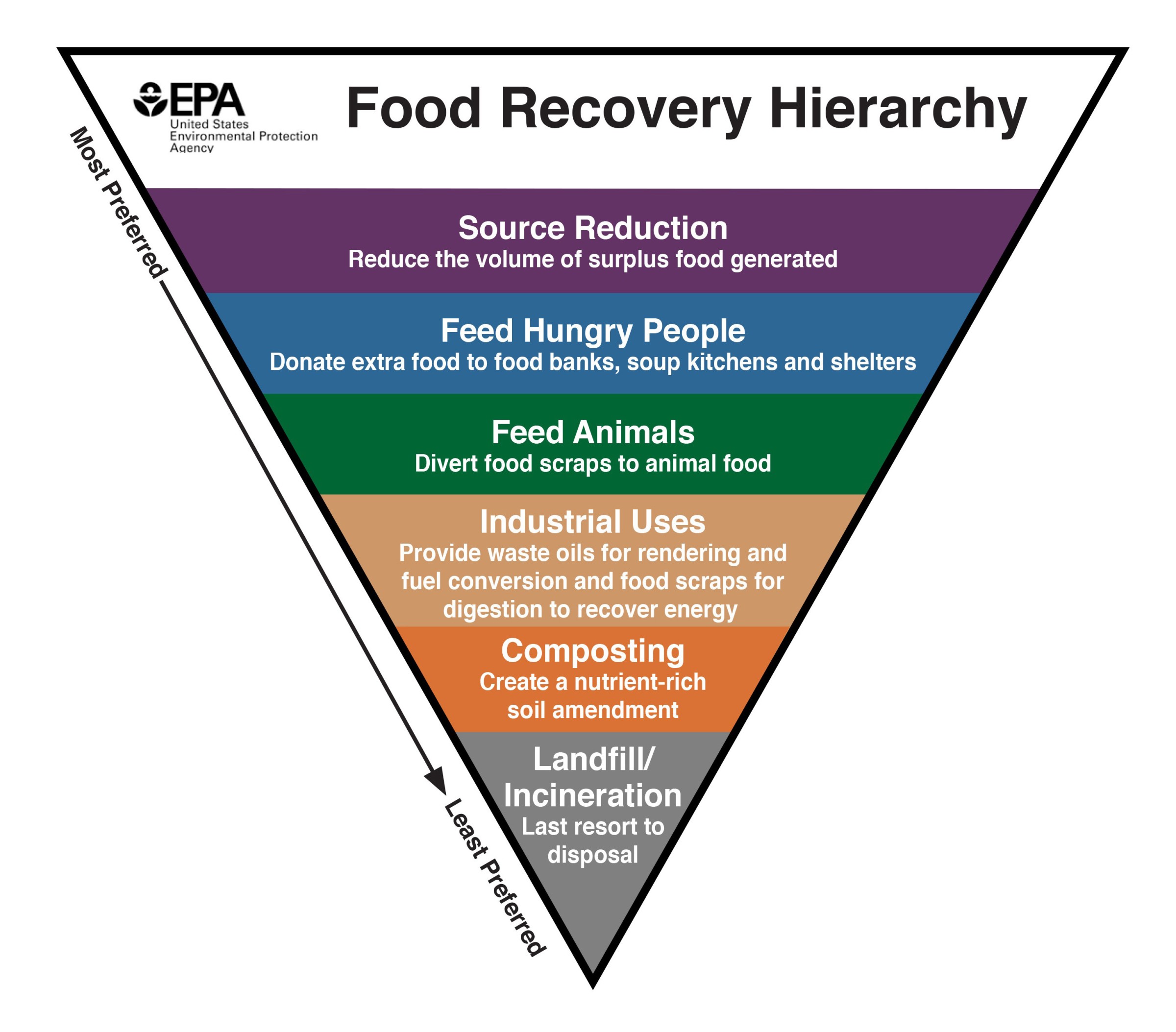Food Waste & Composting
Approximately ⅓ – or 1.3 billion tons– of food is wasted annually, posing a critical humanitarian and environmental issue (2021 UNEP Food Waste Index). Composting is one of five actions outlined in the Food Recovery Hierarchy that should be taken to prevent and divert food waste from landfills.

Source Reduction:
The first step towards food waste reduction should be to stop the creation of food waste at the source. This can be done by meal planning to minimize excess food, finding creative ways to use food that is nearing the end of its useful life, and storing or preserving food in ways that keep it fresh for as long as possible.
Further Resource(s):
Tips for Reducing Food Waste from USDA
Feed Hungry People
Using excess food to feed hungry people avoids wasting the resources and emissions generated throughout the food production process, while also helping to address food insecurity and malnutrition in one’s own community. To donate food, explore local food recovery organizations and food pantries accepting donations.
Further Resource(s):
Food Waste and Recovery Guide for Madison and Dane County
Feed Animals
At the household level, feeding animals can be a practical way to dispose of food waste—especially fruit and vegetable scraps. For example, backyard chickens can eat many types of fruit and vegetable scraps. Be sure to check any local ordinances that regulate livestock feed.
Further Resource(s):
Using Food Waste as Livestock Feed Extension Publication
Industrial Uses
This refers to disposal options for food waste that convert it into a usable form, often some type of fuel. While industrial use options for food waste are currently limited, Dane county has taken steps in developing their Sustainability Campus that will establish composting sites and anaerobic digesters that would accept regional food scraps.
Further Resource(s):
Learn more about Anaerobic Digesters
Composting
Composting is a more sustainable option than landfilling because it returns organic material to local soils, improving soil health and carbon sequestration, and reducing the methane emissions generated by landfills. To learn more about composting, take our course on home composting or explore local commercial food scrap collection options.
Further Resource(s):
Composting Resources from UW-Madison Division of Extension
Enroll in Wisconsin Composting Stewards Course
Landfill/Incineration
Landfilling and incineration should be the last resort to disposing of food waste, and can be avoided by following the steps listed above. The Dane County Landfill accepts waste from Dane County residents and businesses.




